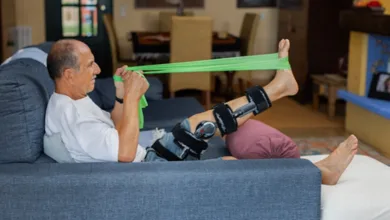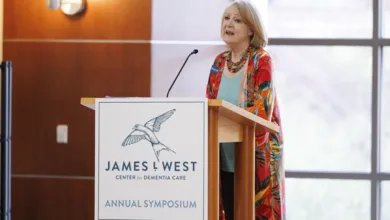Caregiver Meditation

Respite for When You’re Feeling Overwhelmed
When a loved one develops dementia, our relationship with them might suffer a significant disconnect.
Habits and lifestyles may have to change, draining caregivers’ energy and mood.
We may tell each other to take care of ourselves by exercising, getting lots of rest, and eating healthy.
These are all good things, but they will not ease all of our daily struggles as we grapple to cope with unwelcome changes and dark feelings.
Most caregivers don’t realize the critical importance of prioritizing their own wants and needs. Society has long emphasized self-sacrifice at all costs, but that’s completely unnecessary. It is possible to care for our loved ones and ourselves at the same time.
Our attitude drives everything.
We can’t change what has happened, but we can choose how we react to it. Our attitudes are determined by internal conversations about our circumstances. This is what drives the quality of life.
If we don’t pay attention to the direction of our thoughts, challenges can easily become overwhelming.
We might feel backed into a corner with few options and no way out. This attitude leads to insecurity and guilt-ridden negativity.
We can’t control dementia, but we can control our attitudes about it. People change their minds all the time. There’s no pill to take, book to read, exercise to do, or food to eat. Changing one’s attitude for the better is simple and can be done anytime, anywhere, by following the simple meditative steps outlined below.
Meditation Techniques to Reduce Caregiver Stress:
- STOP and be still. Breathe deeply and pay attention to your feelings. Say what you feel out loud. Recognize your words as feelings. They can’t harm you. Allow them to surface and choose to let them go.
- Allow yourself to observe the tension. Don’t beat yourself up. Allow yourself to feel without judgement.
- Relax a bit more. Think about what you genuinely want for yourself. Don’t tell yourself what you don’t want. Focus only on your personal wants and needs. Focus on what is possible for you.
- Ask “what if.” Ask yourself, what if it’s possible:
-
- To embrace what is happening now rather than argue with it.
- To laugh out loud and accept that the world is out of your control.
- To be afraid and step forward anyway, rather than feel consumed.
- To not know what’s next and be fine. The future is always unknown.
Every time you feel overwhelmed, take a few minutes to reflect and meditate. You may find yourself approaching your loved one’s dementia — and many of life’s other stressors — with a new attitude. Self-care for the caregiver is important.
Try It. It works, I promise!





